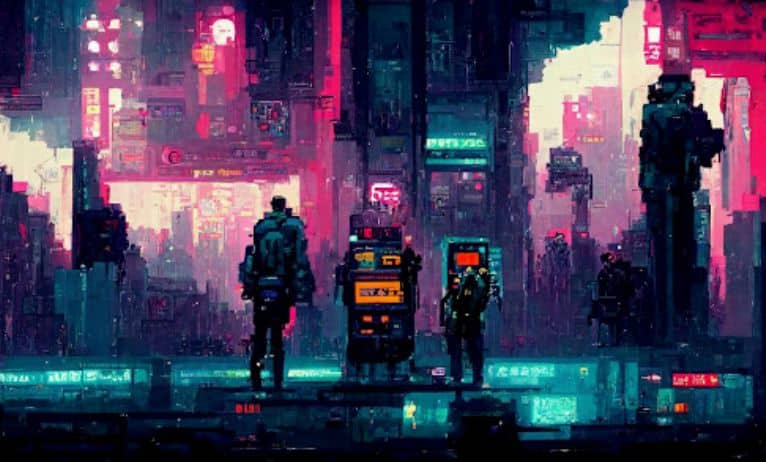Here’s How ‘Digital Nations’ Are Being Formed and Why They Matter

Many would agree that the concept of what defines a nation is changing. Traditionally, a nation was understood as a sizable collection of individuals who share ancestral roots, background, heritage, or dialect and live in the same physical space.
Besides that, a nation is typically associated with a state that maintains a monopoly on the ‘legitimate use of violence’ both externally and internally to secure the nation-own state’s survival. Consequently, the state plays a crucial role in traditional nations by directly or indirectly enforcing the rule of law and citizens’ property rights.
Now though, thanks to the rise of new technologies like the metaverse, NFTs, cryptocurrencies, and blockchain, individuals from around the world have realized that living in a purely digital environment may not be a concept that only resides in the realm of science fiction anymore.
How is the Concept of a Nation Evolving?
It is critical to remember that a nation, which is reliant on many social structures, including but not limited to currencies, religious beliefs, and even large-scale corporations, are all predicated on the idea of a fictional story or narrative. Societies would therefore be formed based on a shared set of ideas, norms, beliefs, and perceptions about reality.
Nations, despite their lack of physicality, are hence powerful coordination tools that enable collaboration among individuals on a massive scale, even if these people do not necessarily know one other but nevertheless have an innate desire to work for the common good of all members of that particular society. In fact, the argument could be made that it is this very concept that separates us from animals.
Additionally, because there are no tangible products in metaverses, everything is virtual. Although, this begs the question of how individuals can make sure that something digital has a perpetual presence when it only remains in a centralized database which can be wiped away with a single click. Moreover, how then can property rights be enforced on non-permanent objects without any of the protective measures provided by the nation-state?
The Use of the ‘NFT Standard’
The NFT standard enables the existence of digital objects in ‘Open Metaverses.’ This also distinguishes these types of metaverses from ‘Closed Metaverses,’ which are owned by a central company. Having said that, the NFT standard in Open Metaverses not only addresses the issue of object permanence, as provided by the fundamental blockchain infrastructure, but it also determines and grants ownership rights.
As such, whereas in physical nation-states, property rights on assets are typically enforced through monopolies or the use of ‘legitimate’ violence, in an Open Metaverse, they are implemented through smart contracts that are performed by a virtual machine. Finally, the NFT standard defines the domain of Open Metaverses. Similar to how web domains work, possessing digital lands in the metaverse enables publishing rights for anchoring content to these digital locations.
Can Someone Really Have a ‘Digital Identity’?
Digital identity in the metaverse is characterized by wallet addresses, so each physical person would be allowed to have numerous addresses depending on their respective needs and desires. Accessing a metaverse would also typically require users to have a strong Internet connection and compatible devices like VR and AR equipment.
In general, an ‘Open Metaverse’ digital nation citizen is someone who owns a tokenized stake in such a platform. Tokenized stakes can be fungible tokens that become the driving force of a digital nation’s economy or non-fungible tokens which symbolize publishing rights on its virtual territory. This kind of stake additionally grants governance rights in digital nations, where Decentralized Autonomous Organizations (DAOs), which are the coordination tools of the Open Metaverses, would also play an important role. These DAOs would therefore allow tokenized stakeholders to have a say in how the digital nation would evolve over time as they are community-driven.
Also, as they are decentralized, DAOs may also be formed in various ways, wherein they can be a direct democracy or an oligopoly. It would all really depend on how they are structured and what kind of governance voting power infrastructure is put in place. In any case, top platforms like the OVER Metaverse are actively working towards boosting the mainstream adoption of metaverses and significantly enhancing the user experience in these digital worlds. Whether it be forming a digital nation or even doing something simple like attending a virtual concert or meeting, the metaverse is indeed here to stay.



